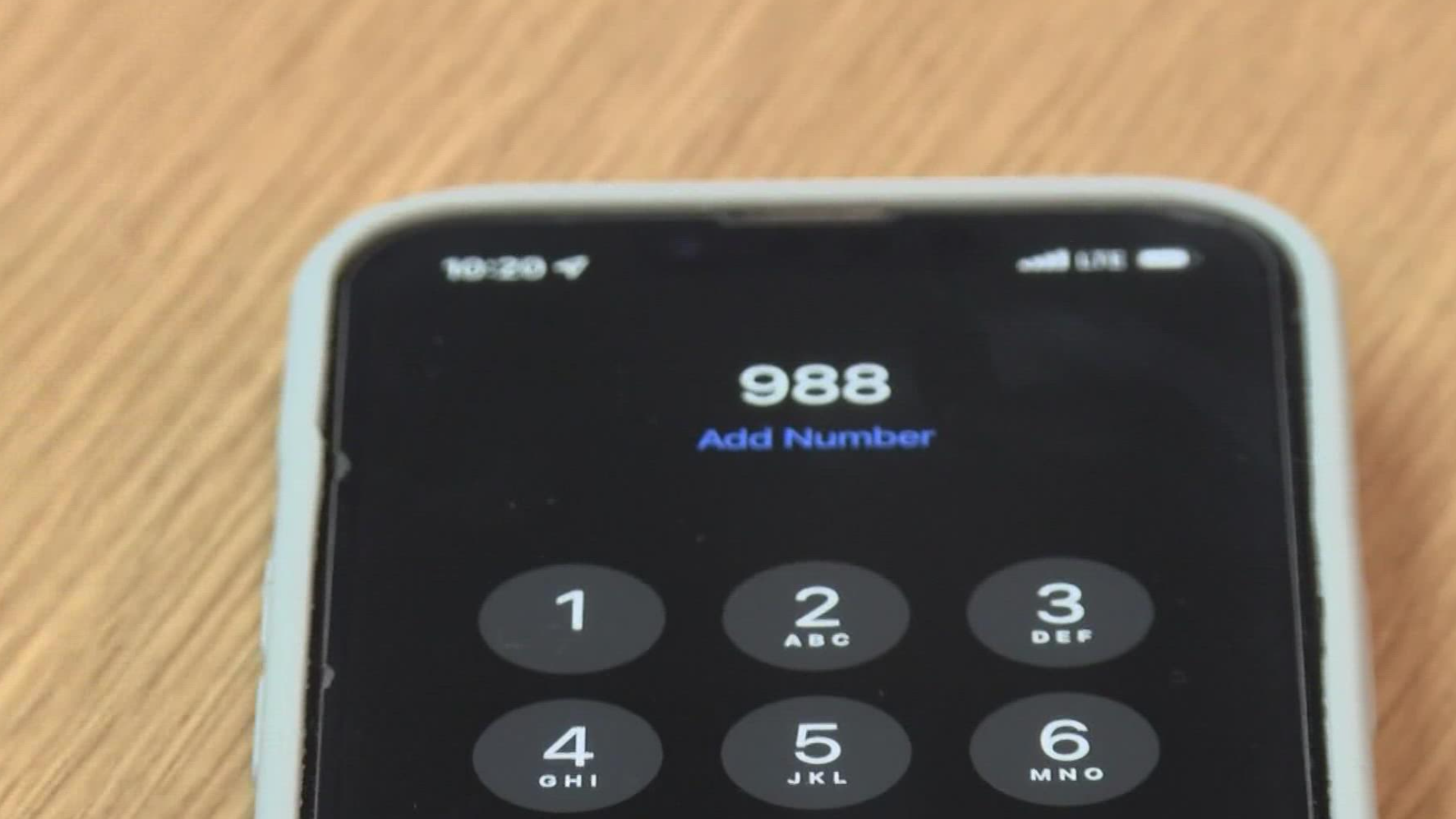MINNEAPOLIS — In an effort to address the rising mental health crisis in the United States, anyone who needs help will be able to dial just three numbers - 988 - starting on Saturday.
However, there are some concerns from local doctors and experts across the country that the new line is understaffed, underfunded and not being promoted enough.
Those same people, though, are still rallying for its success and tempering expectations around the launch that's also being considered more of a long-term transition.
"When we're talking about a country filled with people who are struggling emotionally, and they need to connect with somebody, having that resource that they can connect with somebody is really important," said Dr. Dan Reidenberg, who leads S.A.V.E, a nationally recognized nonprofit to prevent suicide.
Suicide is a leading cause of death in the United States that took nearly 46,000 lives in 2020, or one every 11 minutes, according to The Department of Health and Human Services that manages the current National Suicide Prevention Lifeline.
It's a 10-digit support system that launched 17 years ago, but come Saturday, July 16, a new number will launch.
"The truth is, we don't know exactly how this is all going to roll out," said Reidenberg. "We can't put the brakes on this because it's written into the law."
Congress signed the new 988 hotline into law two years ago, but implementing it now is left up to the states, including how to pay for it.
Stephanie Brooks Holiday is a psychologist who works for the RAND Corporation that found in a recent study only 16% of people surveyed have the budget for it.
"We heard in our interviews that jurisdictions have set up short-term funding options, but they don't know what the long-term funding trajectory and outlook is going to look like," said Brooks Holiday.
The Minnesota Department of Health's Suicide Prevention Coordinator, Emily Lindeman, says that the state set aside $1.3 million to support the line that's routed through four crisis centers in Carver, Hennepin and Itasca Counties and Fargo, North Dakota.
Reidenberg says though, it needs more than $7 million to support a call volume that could be 20 times greater after 988 goes into effect.
"We've been focusing on infrastructure and helping our lifeline centers build that capacity," says Lindeman. "We know that it won't happen overnight, but we feel that we're at least in a good position to help support calls as they come in."
"I don't know if they're ever going to get that kind of money, but we're going to need it," says Reidenberg. "It's literally for having the technology to answer the phone calls that are coming in and pay the phone bills that all of these lines that get answered."
The federal government has already invested more than $400 million and recently distributed another $150 million, part of which Minnesota applied for.
Other states even passed cell phone user fees, but that's something advocates say can be met with resistance.
"That's going to take people stepping up and demanding that elected officials invest; it's not going to happen for free," says advocate Angela Kimbal, senior vice president for Inseparable.
Besides money, a lack of public awareness and potential understaffing are also concerning. The RAND survey also found only 45% of participants have trained staff for special populations like the homeless or LGBTQ people.
"It's a demanding role, there's a lot of burnout, it's often times under paid and so there are concerns with more demand it will be even harder to staff those roles," said Brooks Holiday.
Still, some experts say, while the standard of care in this country may be in shambles, 988 shouldn't be considered a failure.
"Rather, this is an opportunity to expose what we have cultivated in our country and allowed to exist instead of demanding the kind of change people deserve," said Kimball.
As for Reidenberg, he's also ready to rally for its success refusing to give up on people who need him most - a call he answered a long time ago and has no plans to stop now.
"This is a brain crisis, this is a mental health crisis and we need everybody to step in right now to help save lives," said Reidenberg.
There are also several local resources like the National Alliance on Mental Illness or NAMI.
If you or someone you know is facing a mental health crisis, there is help available from the following resources:
- Crisis Text Line – text “MN” to 741741 (standard data and text rates apply)
- Crisis Phone Number in your Minnesota county
- National Suicide Prevention Lifeline at 1-800-273-TALK (8255), Talk to Someone Now
- Throughout Minnesota call **CRISIS (**274747)
- The Trevor Project at 866-488-7386
Watch more Breaking The News:
Watch all of the latest stories from Breaking The News in our YouTube playlist:

